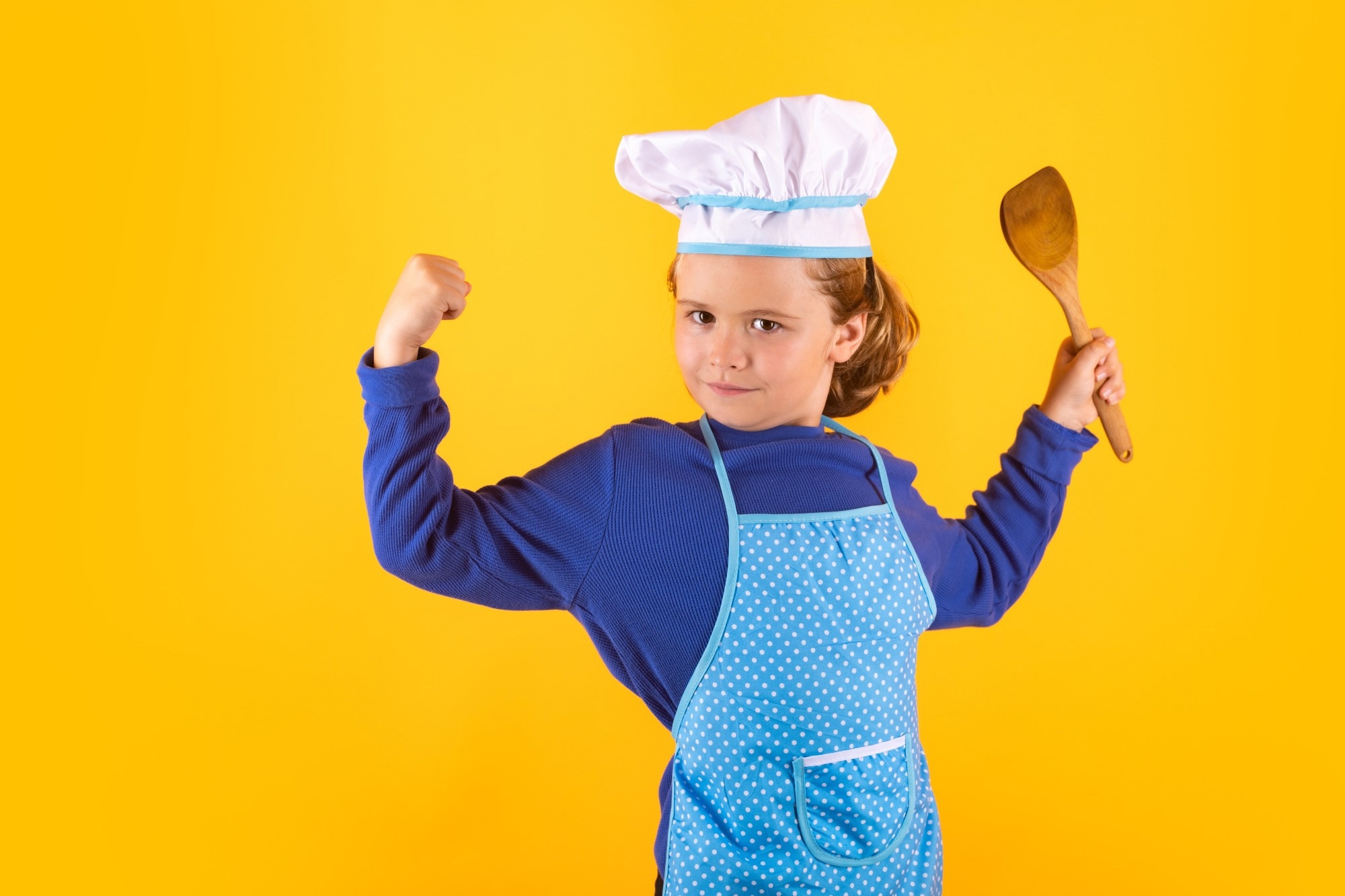Despite parents’ strong food skills, new Canadian research finds no link to their children’s cooking abilities, suggesting hands-on experience matters more than observation alone.
 Study: Longitudinal associations between mothers’ and fathers’ food skills and their children’s cooking skills. Image Credit: Red Fox studio / Shutterstock
Study: Longitudinal associations between mothers’ and fathers’ food skills and their children’s cooking skills. Image Credit: Red Fox studio / Shutterstock
Researchers at the University of Guelph, Canada, conducted a study to explore the impact of parents’ food skills on their children’s cooking skills. The study, published in the journal Applied Physiology, Nutrition, and Metabolism, finds that children are less likely to learn cooking skills by simply watching their parents’ food skills. The study did not directly measure observational learning, instead inferring this from the lack of association between parental skills and child outcomes.
Background
Children perceive their parents as role models at an early age. At this developmental life stage, parents can strongly influence their children’s habits, especially dietary habits, as they primarily make food decisions at home.
Existing evidence suggests that good food skills in parents are associated with healthy dietary habits in children. Food skills refer to a broad collection of knowledge and skills, such as meal preparation and planning, grocery shopping, and reading food labels.
The mechanism driving the association between parental food skills and children’s healthy dietary intake is not clearly known. One proposed theory is that children may learn from their parents’ food skills and eventually develop their own cooking skills. Cooking skills refer to a subset of food skills required to prepare meals.
In modern life, ready-to-eat, highly processed foods have become more popular than cooking healthy foods from scratch. This shift in eating habits may lead to a generation that lacks the skills required to cook from scratch.
Since learning cooking methods at an early age is associated with better food skills and diet quality later in life, effective strategies should be developed to encourage and support children to develop these skills.
The current study aimed to explore how parents’ food skills influence children’s cooking skills in families with school-going children. Although mothers are considered the key parents in teaching cooking skills, this study evaluated the food skills of both mothers and fathers, as recent evidence suggests that fathers play an important and unique role in improving their children’s diet quality.
Study Design
The study analyzed data from the Guelph Family Health Study, an ongoing follow-up study involving families who participated in a randomized controlled trial of a home-based obesity prevention intervention. The sample was predominantly White (85%), high-income, and English-speaking, which may limit generalizability to other populations.
The final analysis included data from 135 families, including 158 children, aged on average 9 years, and their parents (121 mothers and 66 fathers). Self-reported food skills and cooking skills were obtained from parents and children, respectively. As noted in the paper, children’s self-reported cooking skills may have been subject to social desirability bias.
The study considered two aspects of food skills: mechanical and conceptual skills. Mechanical food skills refer to basic food skills, such as preparing meals, chopping and mixing, cooking, and measuring ingredients. Conceptualizing food skills refers to more advanced food skills, such as cooking complex recipes and adjusting them for healthier options.
Food and cooking skills were calculated for each parent and child, respectively. The scores ranged from one to four, with higher scores indicating higher levels of food or cooking skills.
Appropriate statistical models were used to determine longitudinal associations between parents’ food skills and children’s cooking skills, after adjusting for child age and sex, parent age, household income, intervention status (which showed no effect on outcomes), and other factors.
Study Findings
The study found that the mean food skill score for mothers was 3.65 (on a scale of 1 to 4), and for fathers, it was 3.42. For children, the self-reported cooking skill score was 3.36.
The study could not find any significant association between parents’ overall food skills and children’s cooking skills. Similarly, no significant association between children’s cooking skills and parents’ conceptualizing and mechanical food skills was observed.
Study Significance
The study finds that parents, despite having considerably high levels of food skills, did not significantly influence their children’s cooking skills. In other words, the study findings suggest that children do not passively learn these skills from their parents through observation alone.
The current research team has previously reported that active involvement in meal preparation and cooking activities at an early age significantly improves cooking skills in children later in life. This finding indicates that active involvement instead of passive learning is required for children to gain food skills.
Parental time constraints are one of the main factors restricting parents’ ability to actively involve their children in meal preparation and cooking activities. According to the World Health Organization (WHO) report, approximately 488 million people are working long hours, defined as 55 hours of work or more per week. These longer working hours might be associated with a reduction in time spent on meal preparation.
Longer working hours, combined with reduced daily meal preparation time, might explain the lack of association observed between parents’ food skills and children’s cooking skills.
Since childhood cooking abilities often result in healthier food selection in adulthood, researchers highlight the need for initiating school or community-based culinary programs to promote cooking in families and improve children’s cooking skills.